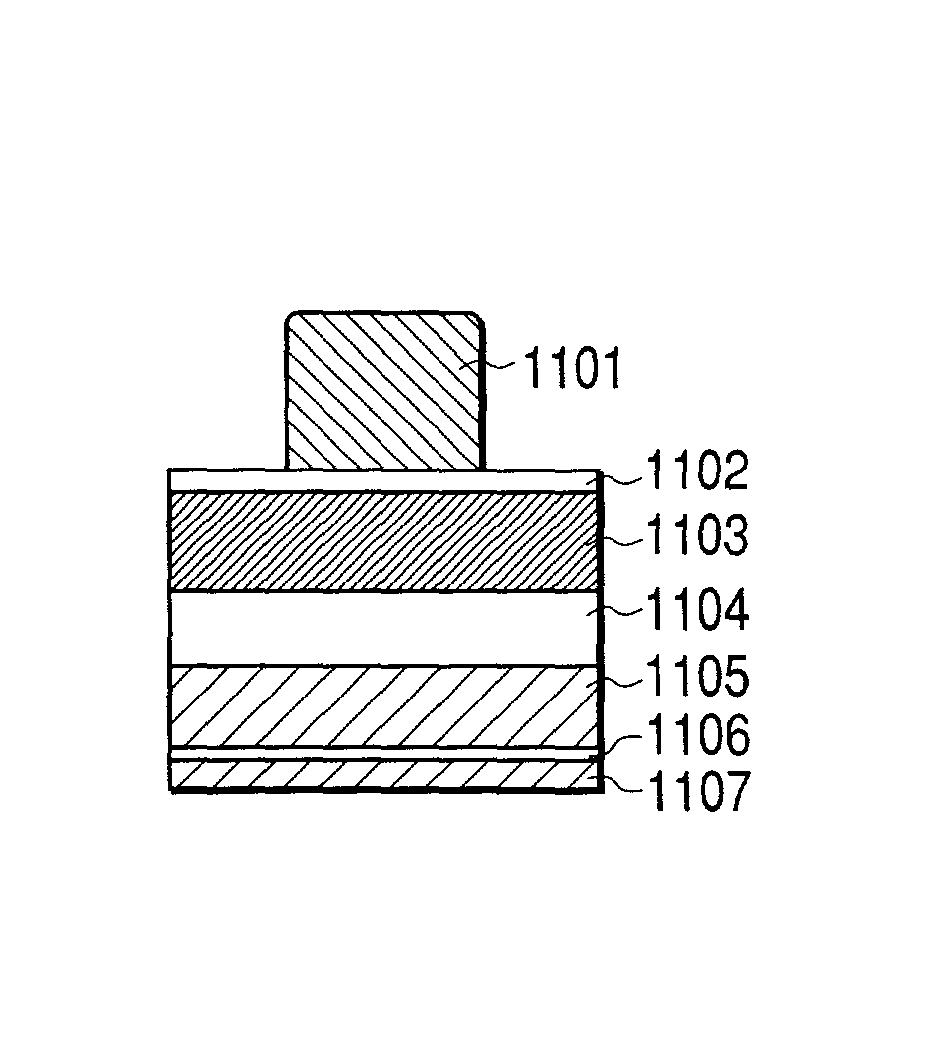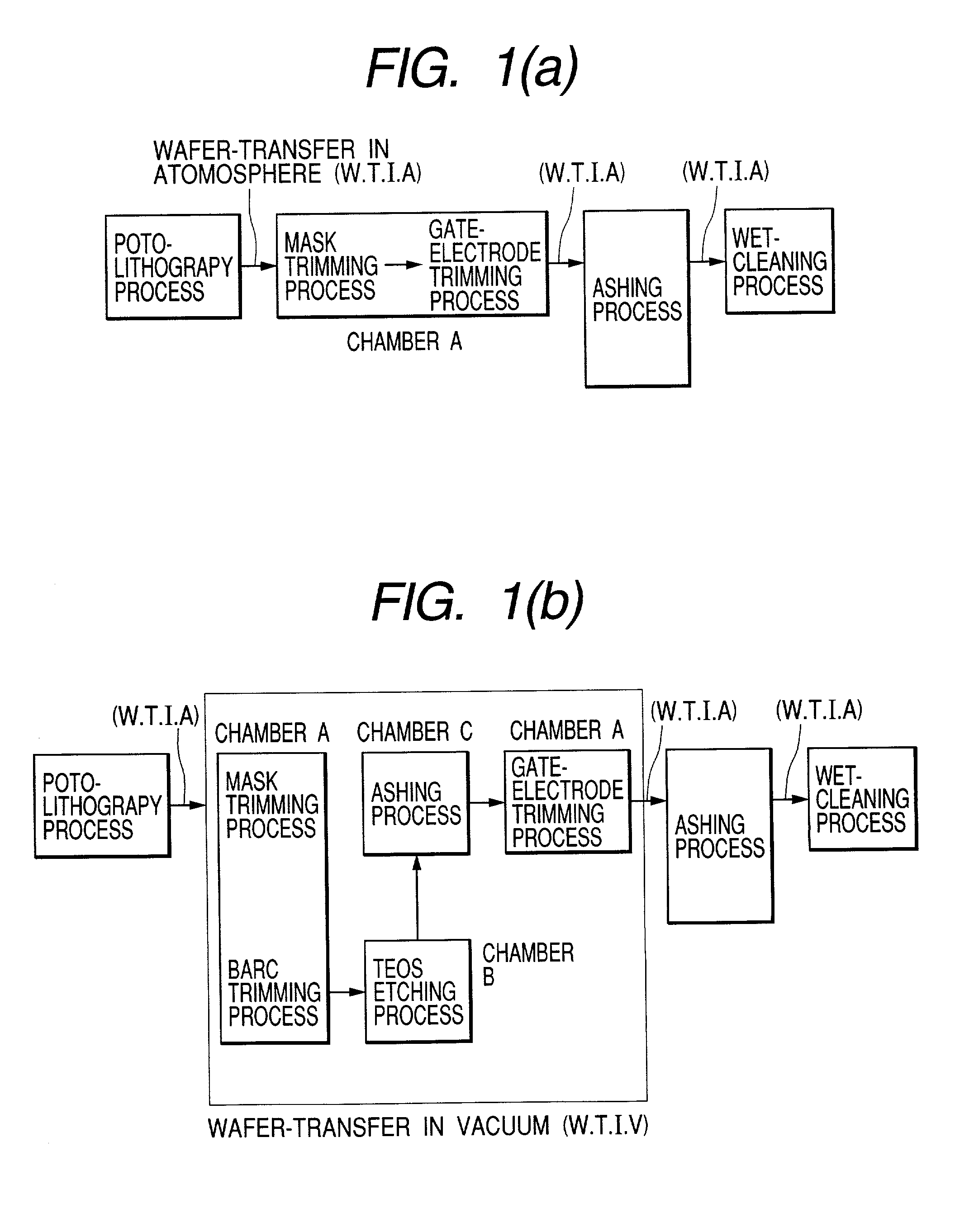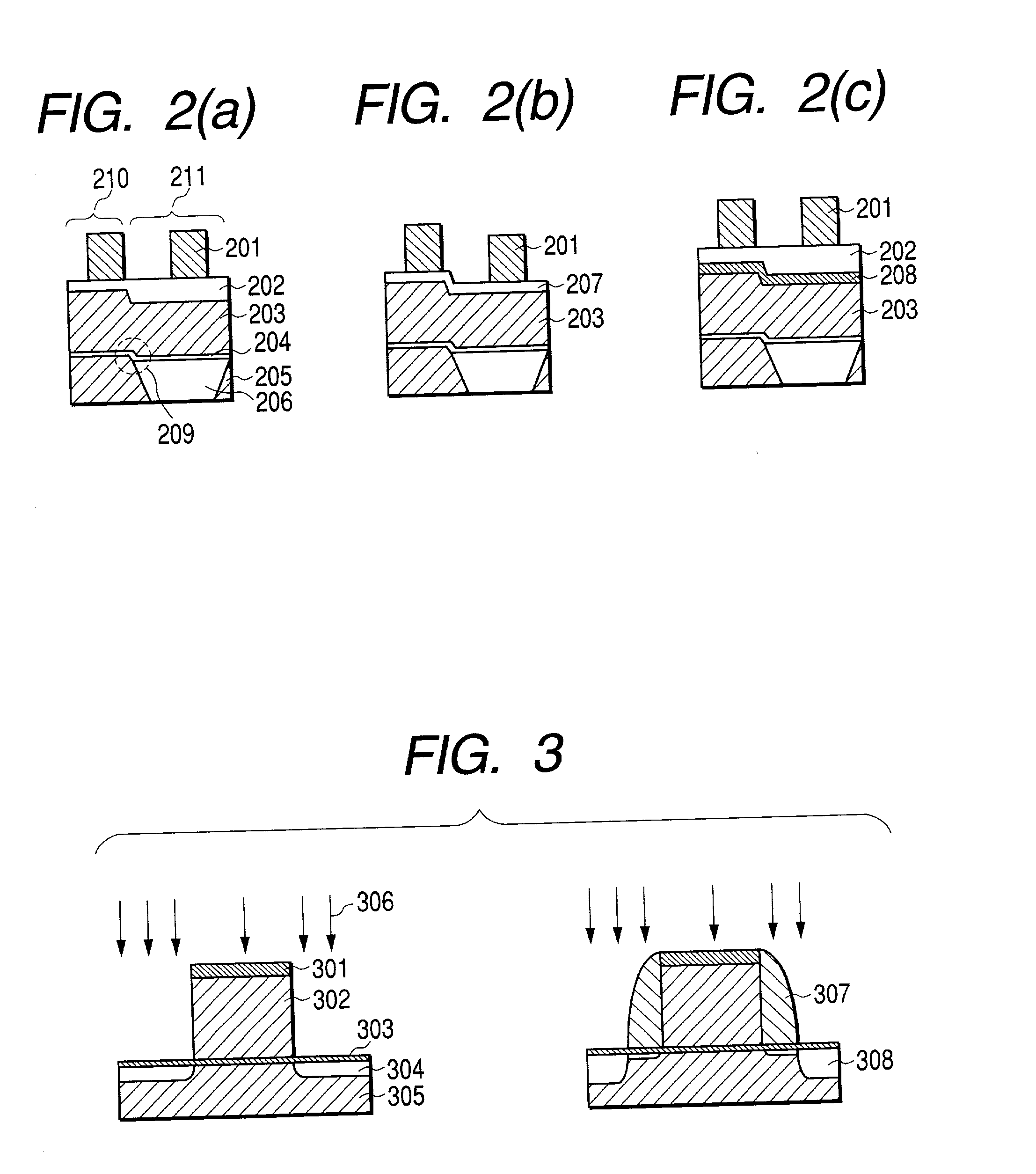Method of manufacturing semiconductor devices
a manufacturing method and semiconductor technology, applied in the direction of semiconductor devices, basic electric elements, electrical equipment, etc., to achieve the effects of reducing the variation in trimming, high-precision processing, and reducing the amount of overetching
- Summary
- Abstract
- Description
- Claims
- Application Information
AI Technical Summary
Benefits of technology
Problems solved by technology
Method used
Image
Examples
example 2
[0062] This example demonstrates a fabrication process in which resist trimming and gate trimming are performed indifferent chambers as shown in FIG. 1(b). The process is intended to realize a gate length of 50 nm from a multi-layered film as shown in FIG. 2(c). This multi-layered film consists of four layers as follows.
[0063] Resist layer (201) . . . 300 nm thick
[0064] BARC layer (202) . . . 65 nm thick
[0065] TEOS layer (208) . . . 50 nm thick
[0066] Poly-Si layer (203) . . . 100 nm thick
[0067] The resist layer has a pattern width of 100 nm formed by exposure to ArF laser. The resist layer (201) needs to remain until the TEOS layer (208) is etched. For the TEOS layer (208) to be etched satisfactorily, the resist layer (201) should have a thickness of 220 nm which is calculated as follows.
50.times.2.times.1.times.2 / 1+20=220 nm Formula (3)
[0068] (where it is assumed that the resist selectivity is 1, the ratio of mask edge to mask center is 2 / 1 (facet factor), TEOS overetching is 100% ...
example 3
[0087] This example demonstrates the effect of transferring wafers in a vacuum environment throughout all the steps of mask trimming, gate-electrode etching / trimming, ashing, and dry cleaning. Passing wafers through the ashing step without exposure to the atmosphere permits water-absorbing foreign matter to be removed in the case where the gate trimming is carried out by using a hygroscopic halide such as HCl and HBr.
[0088] In this example, the trimming process mentioned in Example 2 was applied to the multi-layered gate consisting of resist (1101), BARC (1102), SiN (1103), W (1104), WN (1105), and poly-Si (1106) on a gate insulating film (1107), as shown in FIG. 11(a). The W layer was etched with plasma containing Cl, O, and N, and the poly-Si layer was etched and trimmed with plasma containing Cl, O, and HBr. The trimmed gate has a shape shown in FIG. 11(b), including SiN (1109), W (1111), and WN (1105). After the etching / trimming step, wafers are transferred in a vacuum environme...
example 4
[0089] The process in Examples 1 to 3 employed a UHF-ECR plasma etching apparatus; however, this apparatus may be replaced by the one with a different plasma source so as to produce devices having a gate length of 50 nm or under (which exceeds the limit of exposure).
[0090] The UHF-ECR plasma etching apparatus prevents excessive radical dissociation owing to medium density and low electron temperature. As compared with the conventional apparatus with high density plasma, it suffers less variation in etching amount due to difference in doping density and dopant species (p and n). Moreover, as compared with the apparatus with ICP or CCP plasma, it can control the horizontal distribution more easily owing to the characteristics of its electromagnet. Owing to this advantage, the process in this example performs etching with feed-forward control in a UHF-ECR plasma etching chamber.
[0091] FIG. 9(a) is a flow diagram illustrating the trimming of the sample shown in FIG. 2(c). First, mask tr...
PUM
 Login to View More
Login to View More Abstract
Description
Claims
Application Information
 Login to View More
Login to View More - R&D
- Intellectual Property
- Life Sciences
- Materials
- Tech Scout
- Unparalleled Data Quality
- Higher Quality Content
- 60% Fewer Hallucinations
Browse by: Latest US Patents, China's latest patents, Technical Efficacy Thesaurus, Application Domain, Technology Topic, Popular Technical Reports.
© 2025 PatSnap. All rights reserved.Legal|Privacy policy|Modern Slavery Act Transparency Statement|Sitemap|About US| Contact US: help@patsnap.com



